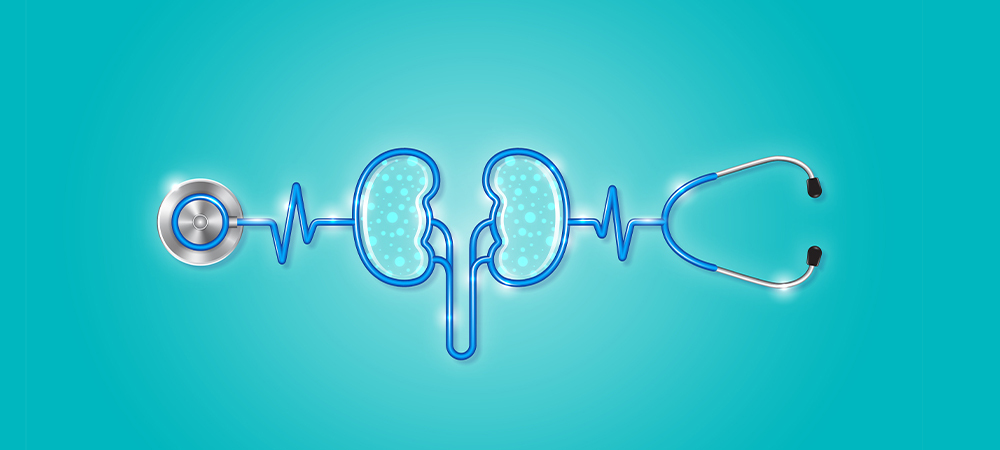
Did you know that any problem with a single organ of your body can induce negative effects on other organs as well? Our bodies are complex and interconnected, with different systems working in harmony to avoid problems. Therefore, when one part encounters any disturbance, other organs automatically change their functioning.
One such example is the crucial connection between end-stage kidney and heart failure. Primarily, the combination of these chronic disorders contributes to the patient’s life expectancy. This blog studies how long someone might survive with these dual diagnoses. We examine the complications they bring and how to approach this complex situation with monitored care.
Where do end-stage kidney and heart failure connect?
When the heart faces trouble pumping blood as efficiently as it used to do, it accelerates toward failure. Typically, this hinders the blood flow that reaches the kidneys, resulting in lower oxygen and nutrients. Consequently, the kidney’s function also declines, and the risk of failure increases. So, the kidneys are less able to filter waste, toxins, and excess fluids from the body, worsening the patient’s health.
On the other hand, when the kidneys do not perform well, there is greater toxin buildup in the body. Therefore, the heart undergoes greater strain, leading to high blood pressure. Gradually, this may lead to heart failure. In essence, the failure of one organ directly impacts the other, explaining the close link between end-stage congestive heart failure and kidney failure.
Symptoms of heart and kidney disease
While heart and kidney problems present different symptoms, they may overlap during end-stage kidney and heart failure. Some of these combined symptoms of cardiorenal issues include:
- Shortness of breath
- Fatigue and weakness
- Edema, or swelling
- Confusion or mental fog
- Lower urine production
- Chest pain
- Irregular heart rate
- Lower back pain
The prognosis: how long can someone live with end-stage kidney and heart failure?
Understanding end-stage kidney and heart failure life expectancy requires facing some harsh realities without losing hope. Mainly, various factors combine to determine the prognosis of such patients. For example, age, medical history, severity of the disease, and response to treatments are all integral in defining the patient’s survival rate.
Unfortunately, the vicious combination of these disorders has a bad influence on life expectancy. Research suggests that patients with end-stage kidney and heart failure have a mean survival period of 444 days. However, this is not definite and can be significantly increased with tailored care and careful monitoring.
Factors that affect heart and kidney failure life expectancy
Now, let’s break down a few key factors that affect the life expectancy of patients:
Medical conditions and age
Generally, young and healthy individuals have a longer life expectancy even during chronic health conditions. Mostly, this is because their bodies adapt better to treatments and are more likely to recover. Alternatively, it is not as easy with older people who already suffer from complex diseases. Conditions like diabetes, pulmonary disorders, and infections make it harder for people to accept treatments.
Dialysis and kidney function
End-stage kidney and heart failure means that the kidneys are no longer at their best. The disease’s prognosis greatly relies on the kidneys’ restoration. Therefore, once the function is abruptly lowered, the patients must switch to dialysis. While it helps filter waste from the blood, it doesn’t replace kidney function entirely. Yet, successful sessions of dialysis are crucial in maximizing life expectancy.
Genetic factors
Genetic susceptibility to certain disorders (such as congenital heart abnormalities or hereditary kidney disease) might also influence the prognosis. Sometimes, individuals with hereditary characteristics may have a quicker illness progression. Other times, their genes may help them respond better to therapies.
Lifestyle factors
Like any other disease, end-stage kidney and heart failure can also be prevented and treated better with simple lifestyle modifications. For example, a low-sodium and low-fat diet help both the kidneys and the heart. Furthermore, moderate physical activity can improve heart and kidney function. However, individuals need to tailor them according to their condition. Mainly, this is because both overexertion and a sedentary lifestyle negatively affect organs.
Early detection
Regular monitoring and early detection play a critical role in managing end-stage kidney and heart failure life expectancy. Regular check-ups, including blood tests, blood pressure measurements, and imaging, help identify early signs of deterioration. It allows timely interventions and prevention of further complications. By detecting issues such as rising creatinine levels in kidney function or changes in heart rate, healthcare providers can adjust treatments early.
The role of palliative care in managing end-stage heart and kidney failure
Apart from medical and curative care, it is equally important to focus on patient comfort and symptom relief. In palliative care, the focus shifts from trying to cure the disease to managing symptoms like pain, breathlessness, swelling, and fatigue. This can significantly revamp the person’s daily life struggles. Also, it addresses emotional and psychological needs, helping both patients and their families cope with terminal illnesses.
Conclusion – Dealing with the diagnosis of end-stage heart and kidney failure
Are you wondering, “How long can you live with kidney failure and heart failure”? The answer to this depends on multiple factors. Commonly, these long-term and complex diseases have a drastic impact on the patient’s life expectancy. Despite this, it does not mean you can do nothing about it. By monitoring the condition attentively, following healthcare advice, utilizing dialysis, and making lifestyle changes, you can reverse the condition’s severity.
Clinical trials offer a powerful opportunity for patients with end-stage kidney and heart failure to access cutting-edge treatments for their condition. While survival statistics may seem grim, the world of medical research is continuously evolving. New therapies are being tested in clinical trials that could offer better symptom management or even new treatment options beyond traditional methods like dialysis and heart transplants. By participating in these trials, patients not only gain access to potential breakthroughs but also contribute to the development of treatments that could change the course for future patients.






